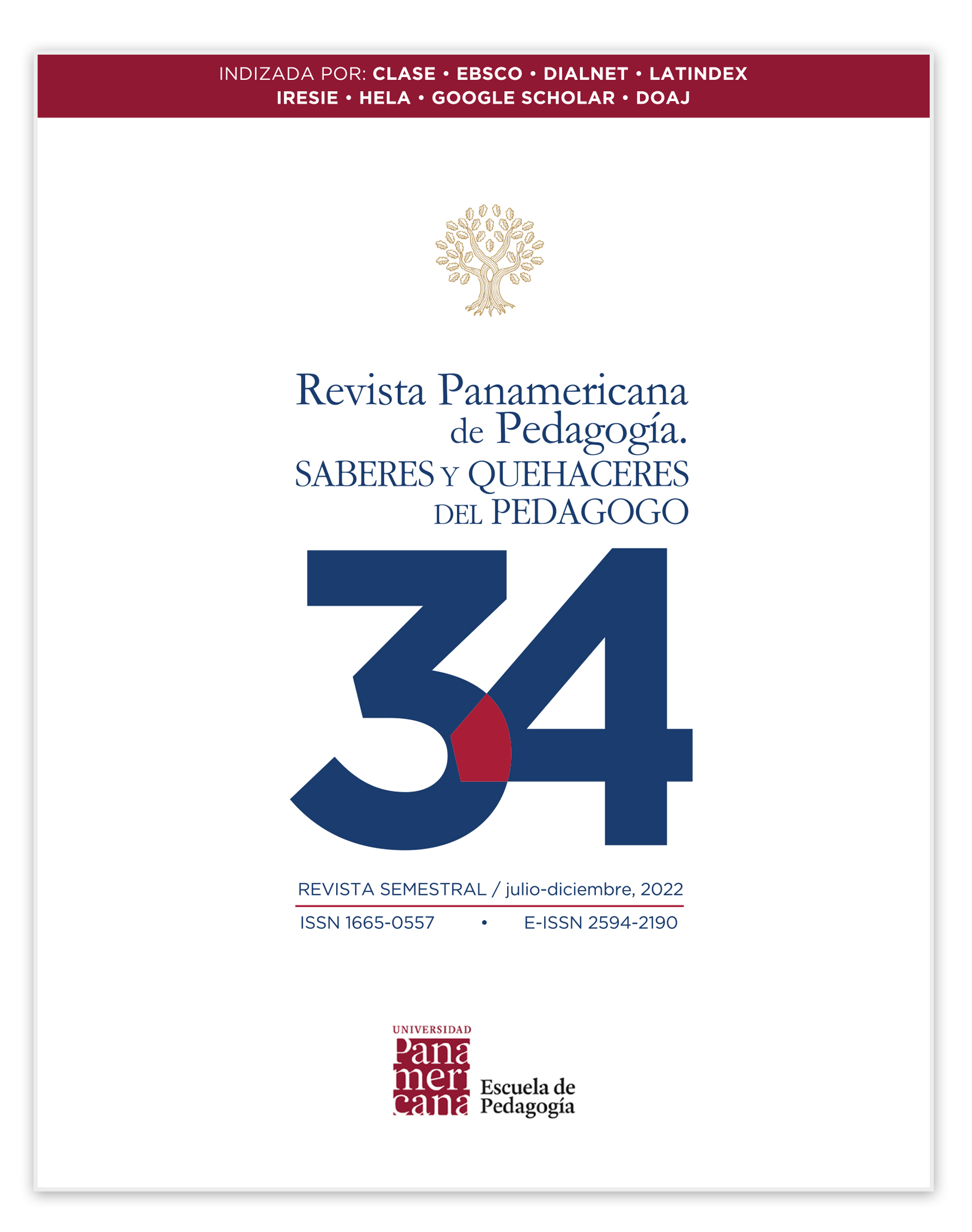TEACHING BY ACTION. THE MEXICAN POST-REVOLUTIONARY´S RURAL EDUCATION PROGRAM (1921-1934). PHILOSOPHICAL-PEDAGOGICAL PRINCIPLES
Published 2022-07-01
How to Cite

This work is licensed under a Creative Commons Attribution-NonCommercial-ShareAlike 4.0 International License.
Downloads
Altmetrics
Abstract
The Secretaría de Educación Pública (SEP), established in Álvaro Obregón’s government (1920-1924), sought, through different cultural projects to institutionalize revolutionary values and form a national identity from them. In the field of education, the educational project was developed which synthesized the rural and the indigenous with revolutionary ideals. This work is part of the assumption that between 1921 and 1934, rural education and its institution education, the Escuela Rural Mexicana, receivd the influence of the pedagogical renewal movement, and teaching, by John Dewey. Rafael Ramírez Castañeda, who on a trip to the United States of America in 1924, learned about the educational trends in vogue in the neighboring country, later, when he was appointed director of rural schools in 1928, projected the collective improvement of rural life in the economic, social, and educational, taking up the American experience of teaching by action. Thus, with this work it is intended to show the implicit parallelism underlying the rural education program, proposed by Ramírez, with Dewey’s philosophical pedagogical principles. The argumentative development will be done by comparing the texts of both authors.
References
- Acevedo, E. (1986). Las Decoraciones que Pasaron a Ser Revolucionarias. En El Nacionalismo y el Arte Mexicano. IX Coloquio Internacional de Historia del Arte, México, UNAM-Instituto de Investigaciones Estéticas, pp. 171-207.
- Bruno-Jofre, R. y Martínez, C. (2009). Ruralizando a Dewewy: el Amigo Americano, la Colonización Interna y la Escuela de la Acción en el México Posrevolucionario (1921-1940). Encounters in Theory and History of Education, (10)43-64. https://ojs.library.queensu.ca/index.php/encounters/issue/view/219
- Dewey, J. (1972a). Ethical Principles Underlying Education. In J. Dewey. The Early Works, 1882-1898, (5)54-83. Southern Illinois University Press.
- Dewey, J. (1972b). My Pedagogic Creed. In J. Dewey. The Early Works, 1882-1898 (5)84-95). Southern Illinois University Press.
- Dewey, J. (1995). Democracia y Educación. Morata.
- Fell, C. (1989). José Vasconcelos. Los Años del Águila: Educación, Cultura e Iberoamericanismo en el México Posrevolucionario. UNAM.
- Hamann, E.T. (2015). Moisés Sáenz. Vigencia de su Legado. Escuela Normal Superior «Prof. Moisés Sáenz Garza» y Fondo Editorial de Nuevo León.
- Loyo, E. (1985). La Casa del Pueblo y el Maestro Rural Mexicano. Secretaría de Educación Pública (SEP)-El Caballito.
- Miñano, M. H. (1945). La Educación Rural en México. Ediciones de la Secretaría de Educación Pública.
- Ramírez, R. (1942). La Enseñanza por la Acción dentro de la Escuela rural. Secretaría de Educación Pública.
- Ramírez, R. (1986a). El Gran Período Constructivo del Movimiento Educacional de México surgido de la Revolución. En C. Jiménez Alarcón, Rafael Ramírez y la Escuela Rural mexicana, pp. 99-105. Secretaría de Educación Pública (SEP)-El Caballito.
- Ramírez, R. (1986b). El Movimiento de la Educación Progresiva. En C. Jiménez Alarcón, Rafael Ramírez y la Escuela Rural Mexicana, pp. 86-99. Secretaría de Educación Pública (SEP)-El Caballito.
- Ramírez, R. (1986c). La Educación Activa y la Funcional. En C. Jiménez Alarcón, Rafael
- Ramírez y la Escuela Rural Mexicana (pp. 181-186). Secretaría de Educación Pública (SEP)-El Caballito.
- Ramírez, R. (1985). Propósitos Fundamentales que la Educación Rural Mexicana debe Perseguir. En E. Loyo, La Casa del Pueblo y el Maestro Rural Mexicano, pp. 31-42. Secretaría de Educación Pública (SEP)-El Caballito.
- Rockwell, E. (2005). La Apropiación, un Proceso entre Muchos que Ocurren en Ámbitos Escolares. Memoria, Conocimiento y Utopía, 1, 28-39.
- Sáenz, M. (1927). Dando Conocer a México. Conferencias sustentadas en la Universidad de Chicago en 1926, y publicadas en dos tomos, en inglés, por dicha universidad. Mexican Folkways, 3(1), 175-176.
- Sáenz, M. (1928). Las Escuelas Rurales y el Progreso del Indio. Mexican Folkways, 4(1), 73-75.
- Sandoval, M. (1998). Arte y Folklore en Mexican Folkways. UNAM-Instituto de Investigaciones Estéticas.
- Villoro, L. (1999). Estado Plural, Pluralidad de Culturas. Universidad Nacional Autónoma de México (UNAM)


